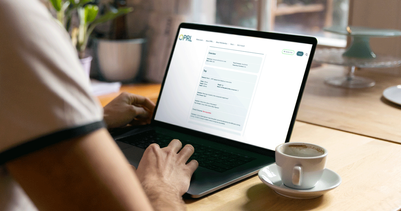New OPRL Recyclability Assessment Tool helps brands meet the demands of pEPR
Published:
Read Time: 3 mins
OPRL’s newly-launched Recyclability Assessment Tool is an interactive tool designed to help brands make informed choices around packaging design and reduce financial obligations under pEPR.
Alice Harlock, Director of Technical and Member Services at OPRL, described the latest development as an important stage in the journey to increase recyclability and meet the demands of Extended Producer Responsibility for Packaging (pEPR).
Harlock said: “With the arrival of modulated fees in 2026, non-recyclable packaging will be charged at a higher rate, so any work to improve recyclability now will be well-rewarded. OPRL’s previous tools were designed to help our members choose the appropriate recycling label, but the new Recyclability Assessment Tool isn’t just for packaging on the shelves; it can be used at any stage of the design process to improve recyclability.
“This capacity to assess recyclability and provide advice for improvement not only enhances the environmental impact of packaging, but also benefits our members' bottom line. At this stage, the tool applies OPRL metrics and industry expertise to assess recyclability. However, once the official list of recyclable and non-recyclable materials is released, we will align our tools with Defra’s Recyclability Assessment Methodology (RAM).”
Members will already be familiar with OPRL’s labelling tool, which determines the correct recycling label and provides print-ready artwork. The new Recyclability Assessment Tool analyses a greater range of data, including the size and weight of components, as well as areas like packaging type, materials, and laminations or coatings. The resulting recyclability assessments can be saved in the tool or downloaded for future reference.
Harlock concluded: “At such a time of change, brands are looking for help to navigate uncertain waters. Companies know that improving recyclability is a fundamental step towards reducing pEPR costs, but without insight into current and future choices, many are struggling.
“We are already seeing interest from businesses looking to apply the new OPRL tool to analyse designs. And as pEPR comes into force, we will continue to adapt to support our members to meet these new challenges.”
To be eligible for OPRL’s ‘Recycle’ label, packaging must be collected by more than 75 per cent of local authorities, sorted and reprocessed to end markets. OPRL’s labelling guidance is subject to scrutiny from a Technical Advisory Committee, comprising representatives from across the value chain, including brands and retailers, trade associations, reprocessors, local authorities, and experts such as climate action NGO WRAP.
The Technical Advisory Committee consists of experts* who ensure that OPRL’s information and tools are up to date and backed by evidence. Current members include representatives from WRAP, major retailers and waste management firms. In addition, we consult our material-specific guarantors for advice on particular materials or products. These organisations represent reprocessors and local authority collection bodies.
* List of organisations consulted by OPRL when assessing recyclability
- Alliance for Beverage Cartons and the Environment UK (ACE UK)
- Aluminium Packaging Recycling Organisation (Alupro)
- British Glass
- Confederation of Paper Industries (CPI)
- Industry Council for Packaging and the Environment (INCPEN)
- Local Authority Recycling Advisory Committee (LARAC)
- Metal Packaging Manufacturers Association
- Recycling of Used Plastics Ltd (RECOUP)
Ends
Editors notes
• OPRL Ltd operates the UK-wide On-Pack Recycling Label scheme used by over 750 member companies and charities. It is the leading independent expert in packaging recyclability, providing recycling and refill labels – and advice – to 95 per cent of the UK groceries market.
• OPRL is an independent, not-for-profit company limited by guarantee, established to help retailers and brands engage their customers in recycling.
• The company’s guarantors span ACE UK, Alupro, British Glass, CPI, INCPEN, LARAC, MPMA and RECOUP.
• OPRL was launched in 2009, as a not-for-profit limited by guarantee as part of the British Retail Consortium (BRC). The move followed work between BRC, the Food and Drink Federation (FDF) and their leading members, and WRAP. The aim was to devise a labelling system that would engage consumers with recycling, as local authorities started to roll out basic services. Three of the founding directors are still on our board.

